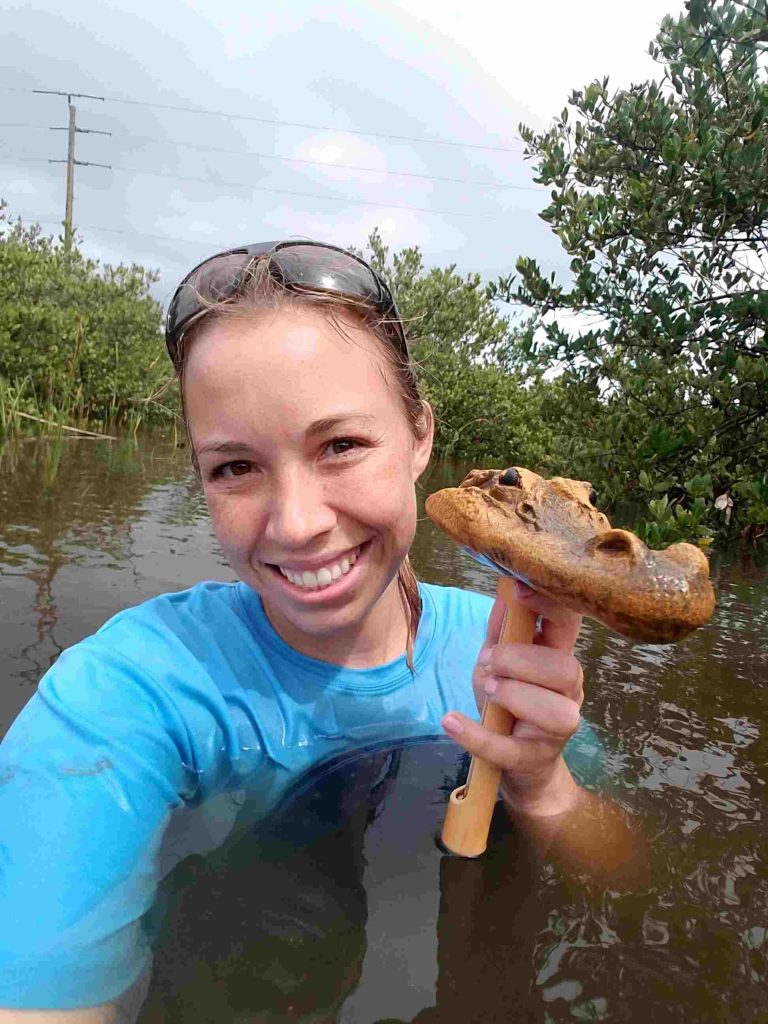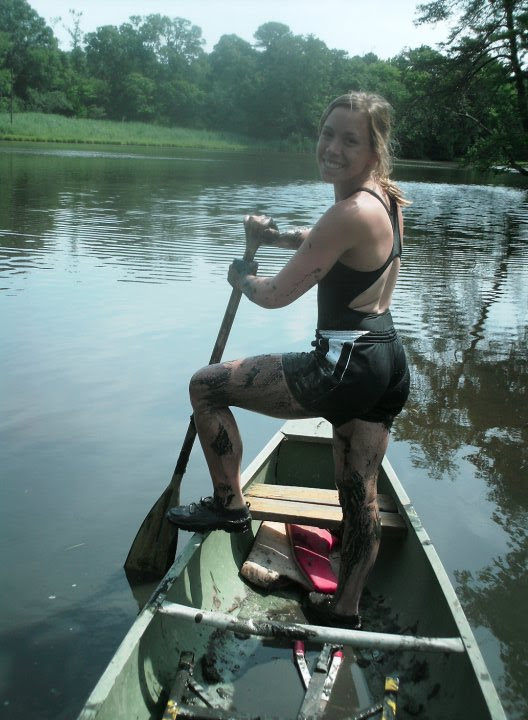UF Center for Coastal Solutions’ alumna Julie Walker has always embraced a challenge, even if it means facing down an alligator to check on her field experiments. During her doctoral studies, she once spotted what appeared to be an alligator’s head floating near her work site in the marsh. After waiting for 30 minutes, she used a stick to scare it off, before carefully approaching — only to find it was just a pool thermometer shaped like an alligator’s head. That spirit of determination and resilience has been a hallmark of Walker’s work throughout her career.

“Julie is more than a great scientist and accomplished researcher. She was the heart of the group,” said Todd Osborne, Ph.D., UF Center for Coastal Solutions affiliate faculty member and Walker’s co-advisor. “Humor and personality go a long way when the lab work gets monotonous, and even more so when the temperatures hit 100 degrees in the middle of summer in the salt marsh! Julie inspired students and professionals alike with great science, a super attitude and a commitment to excellence.”
As a graduate student in the UF School of Natural Resources and Environment, Walker studied how climate change-driven mangrove migration into salt marshes impacts local plant and animal habitats. While her findings suggested that the changes to habitat services would be minimal, she identified a more pressing concern: the rapid loss of both salt marshes and mangroves. She concluded that protecting and managing these vital coastal wetlands—whether mangroves or salt marshes — is crucial. Walker’s versatility in addressing this complex issue became evident through her ability to tackle complex challenges in different ways.

“Julie became a jack of all trades while she was here,” said co-advisor Christine Angelini, Ph.D., professor in the UF Environmental Engineering Sciences Department. “She could conduct grueling field experiments in the mangroves, large-scale mesocosm experiments, collect and analyze hundreds of hours of video feeds for fish behavior, and take deep dives into policy.”
Walker’s work on mangrove management became a silver lining during the COVID-19 pandemic, when much of her fieldwork was canceled, and she had to redirect her research efforts.
“My co-advisor Christine Angelini was co-leading a class with the UF law department, and I was able to foster those strong relationships and develop a better understanding of how to apply my science,” said Walker. “Building those relationships made my dissertation highly interdisciplinary and set me up for my career.”
As a postdoctoral fellow at the University of Massachusetts Amherst and United States Geological Survey (USGS), Walker is focused on identifying gaps in salt marsh data, particularly regarding the impact of ditches in the northeastern United States. These ditches have long been hypothesized to drain salt marshes, disrupt sediment buildup and increase vulnerability to sea level rise. However, a lack of detailed data on ditch locations has made it difficult to assess their full impact in marsh degradation on a regional scale. Walker and her team are working to map ditch locations from Maine to Virginia, aiming to prioritize remediation efforts to protect these crucial ecosystems.
“This is the kind of science I’m interested in,” said Walker. “It’s data-driven and informs a specific management suggestion. I was able to use my experience in research and applied work at UF to position myself for both academic and government roles, which has been very valuable. In this new age of science, we’re breaking down silos. It’s becoming more apparent that to solve these bigger world issues, we need a diverse team.”
—
By Megan Sam
